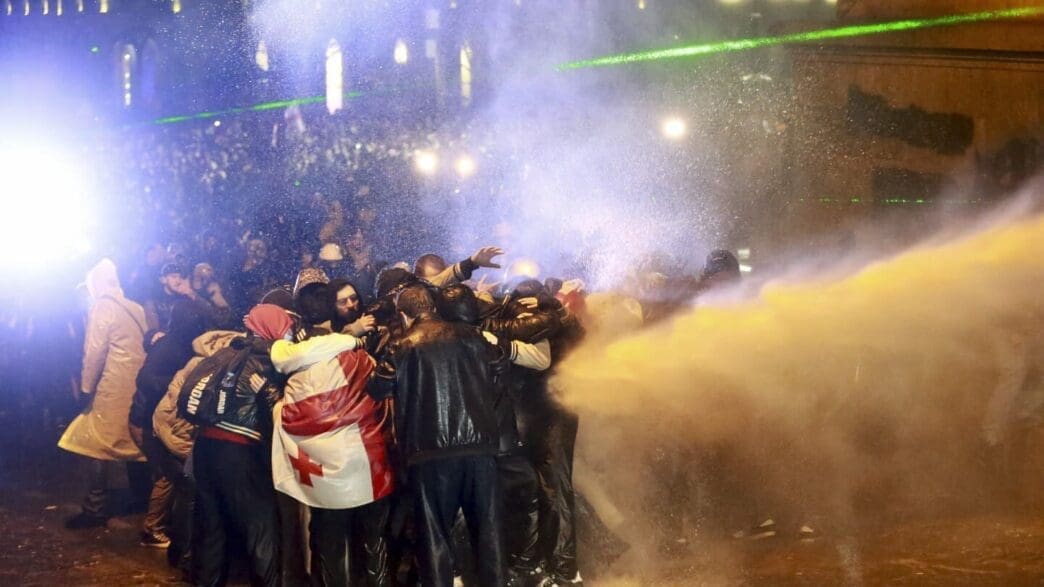A tense situation has unfolded in Tbilisi, Georgia, as demonstrators voice their discontent over the government’s decision to pause negotiations with the European Union. The protests have escalated over several nights, resulting in clashes with police and numerous hospitalizations.
The heart of the unrest lies outside Georgia’s parliament, where thousands of protesters have gathered for four consecutive nights. This unrest stems from the suspension of talks aimed at Georgia’s integration with the European Union, a move that many citizens fiercely oppose. Over recent nights, the protests have seen increasing intensity, with demonstrators engaging in confrontations with police, setting off fireworks, and burning effigies.
The situation reached a boiling point with authorities using water cannons and tear gas to disperse the crowds. As of the latest reports, 44 individuals have been hospitalized, including protesters, police officers, and a media member. The police response has been described as robust, aimed at managing the large crowds and maintaining public order.
Amid the turmoil, Prime Minister Irakli Kobakhidze delivered a stern warning, stating that any legal breaches would be met with appropriate consequences. He further stated that claims about halting Georgia’s EU integration were misleading, blaming external pressures as significant hurdles in the negotiation process.
These events occur against a backdrop of broader political tensions, marked by the European Parliament’s criticism of Georgia’s recent elections, labeling them as neither free nor fair. The suspension of EU talks has exacerbated the discontent, fueling accusations of external influence, particularly from Russia, in the electoral process.
The protests have also led to diplomatic shifts, as Georgia’s ambassador to the United States resigned in light of the escalating unrest. The European Union has expressed serious concerns about democratic setbacks in Georgia and has urged authorities to uphold peaceful assembly and expression rights. Meanwhile, the Georgian Dream party, currently in power, faces significant backlash from opposition groups demanding fresh elections.
The protests in Georgia represent a critical juncture for the nation, as citizens struggle with their government’s strategic direction and its implications for the country’s future on the European stage. As tensions continue, the world watches closely, concerned about the potential for further escalation and the long-term impact on Georgia’s international relationships.
Source: Apnews








